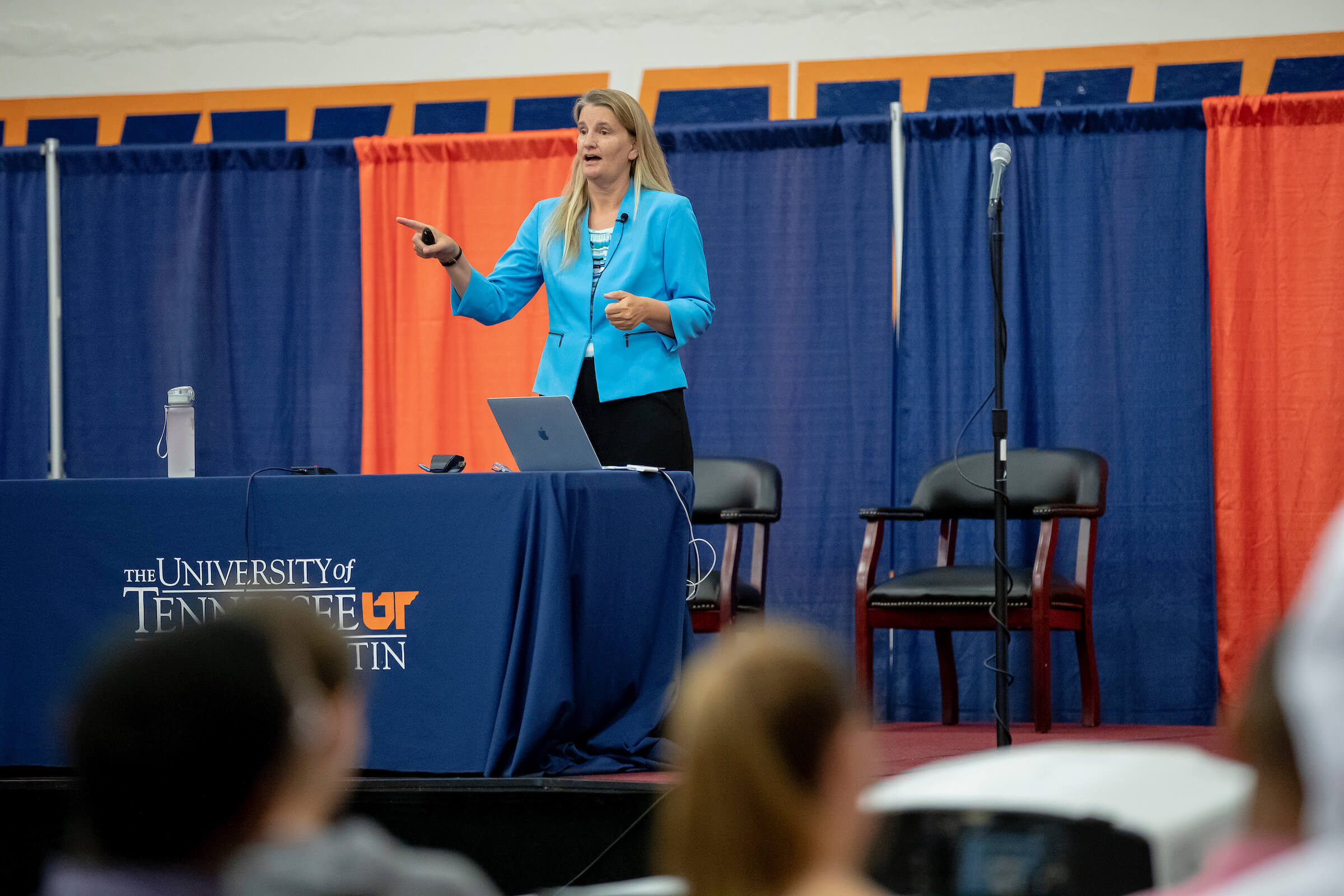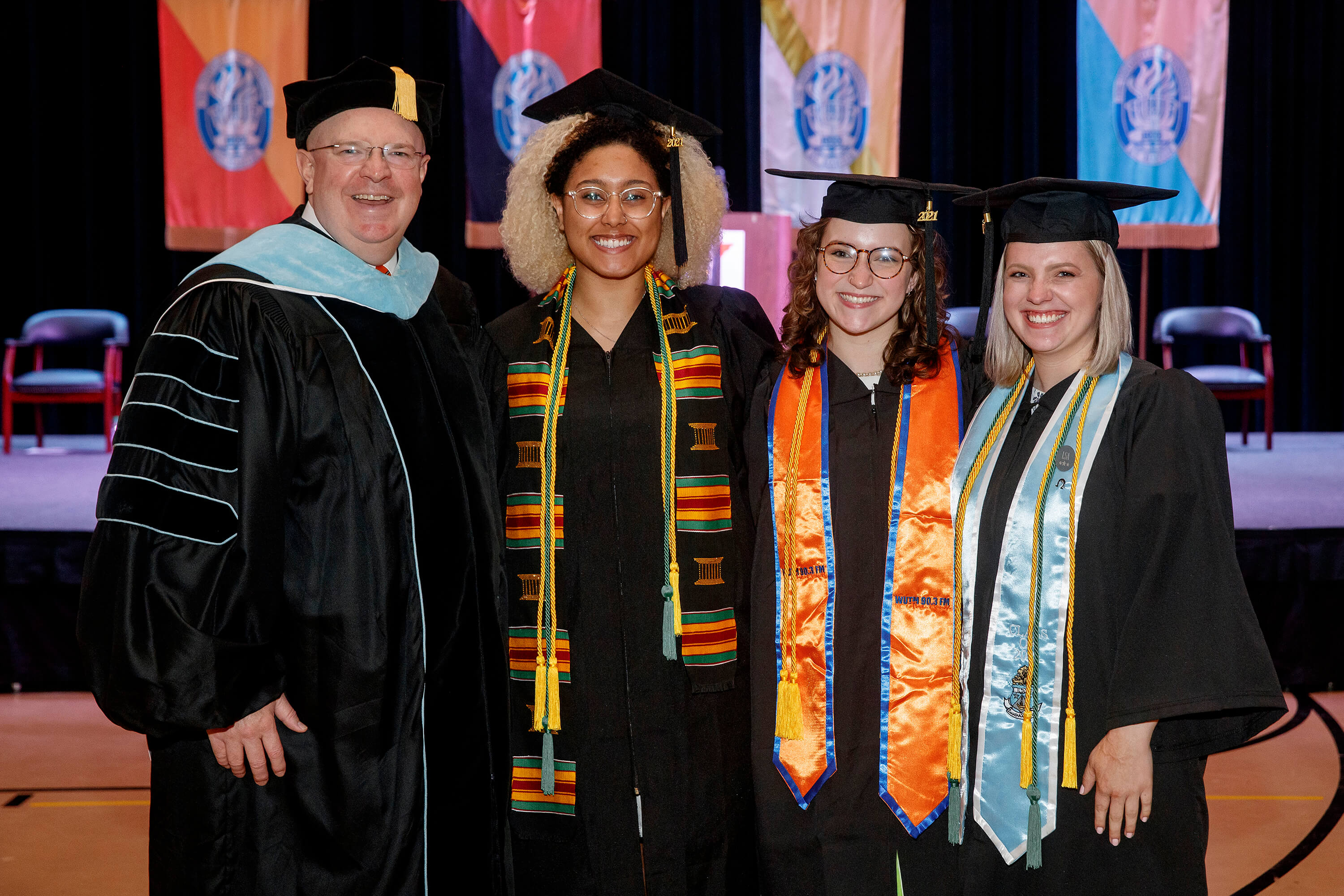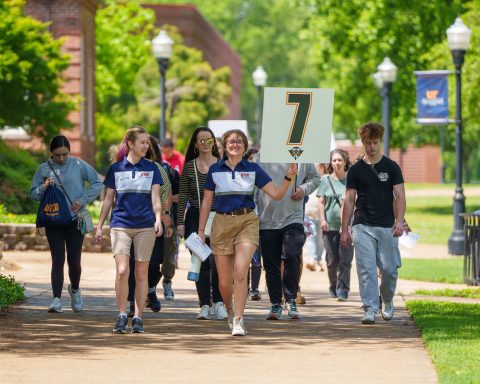Dr. Jean Twenge, professor of psychology at San Diego State University, spoke Sept. 3 at the University of Tennessee at Martin as the first guest in the university’s ENGAGE Civic Initiative. Her presentation focused on “iGen: The Smartphone Generation” from a psychological perspective and offered insights into current social and health trends for those born from 1995-2012.
“Your generation is the first to spend your entire adolescence and maybe some of your childhood as well in the age of the iPhone,” said Twenge, speaking to an audience of students largely in this category. She then presented data on three primary trends dealing with the cultural development, mental health and social interactions of the current college generation.
First, she examined a variety of data sets showing how members of the “iGen” generation are developing more slowly than those considered “baby boomers,” “generation X” and “millennials.” National surveys conducted since 1976 show that the percentage of high school seniors in 2018 who have ever dated, tried alcohol, gotten their driver’s license, gone out without their parents or walked to school alone has declined dramatically since the late ‘70s. While many of these represent positive trends in safety and personal health, they also indicate a generation that is less prepared to transition to college and the associated adult decision-making situations.
Twenge then discussed the marked decline in self-reported mental health and happiness among teenagers since 2011.
“Around 2011, 2012, I started to notice changes that were bigger and more sudden. … More and more teens started to say that they felt left out or that they felt lonely. More and more started to say that they can’t do anything right, or that their life wasn’t useful, or that they did not enjoy life,” she said.
National data shows that 12 to 17-year-olds who self-report a depressive episode in the past 12 months doubled from 2011 to 2018, rising from eight percent to 16 percent in seven years. There are also increases in self-reported depression, anxiety, suicidal thoughts and self-harm behaviors among undergraduates during this same timeframe.
“2012 and into 2013 was the first time that most Americans owned a smartphone,” said Twenge. “It’s also around the time that social media use among high school students started to really become popular. The smartphone went from being introduced to half the people having it in five years. It’s the fastest adoption of technology as far as we can tell.” Twenge then showed a photograph of a line of people in a shopping center all staring at their phones. “Before (2012), say in 2009, you didn’t see things like this.”
“The time teens say they spend online has more than doubled since 2006,” said Twenge. “The total time high school seniors say they spend texting, online and on social media – just three activities, and just during leisure time, not counting work or homework – adds up to about six hours a day. More comprehensive surveys say it’s closer to eight hours a day. … So potentially that might mean there’s less time for other ways the people used to spend their leisure time.”
Twenge displayed data sets showing increases in the percentage of high school students who say they sleep fewer than seven hours per night and decreases in those who spend time with friends informally almost every day. That percentage has been cut in half since 1976 and is now hovering between 25-30 percent of eighth, 10th and 12th grade students.
While the cause of these trends is difficult to determine with certainty, Twenge says students surveyed report stronger feelings of happiness when they spend more time participating in activities such as exercise, sports, in-person social interaction, religious services and getting more than seven hours of sleep per night. Conversely, students report stronger feelings of unhappiness the more time they spend online, using social media, gaming and texting.
Twenge attributes some of this data to the replacement of face-to-face interaction with virtual interaction, the tendency of social media users to treat others online in ways they would never treat them in person, and the comparisons between another person’s online “highlight reel” and your day-to-day life.
“So many of the causes of happiness and depression are out of our control. We can’t help the genes we were born with; we can’t help the negative stuff that happened to us in the past. … There are a lot of things that are out of our control or feel out of our control,” said Twenge. “But, you know what we can do? We can control how we spend our leisure time. So, what do you do? You don’t have to give up the phone. You don’t even have to give up social media if that’s something that you want to do. But think about those things that really do make you happy. …
“Smartphones are awesome; they do a lot of things for us. But they have to be a tool that we use and not a tool that uses us,” she concluded.
Twenge recommends limiting leisure smartphone use to fewer than two hours per day, not including time needed for professional work, homework and navigation.
For more information on speakers in the UT Martin ENGAGE Civic Initiative, visit utm.edu/engage.
###











